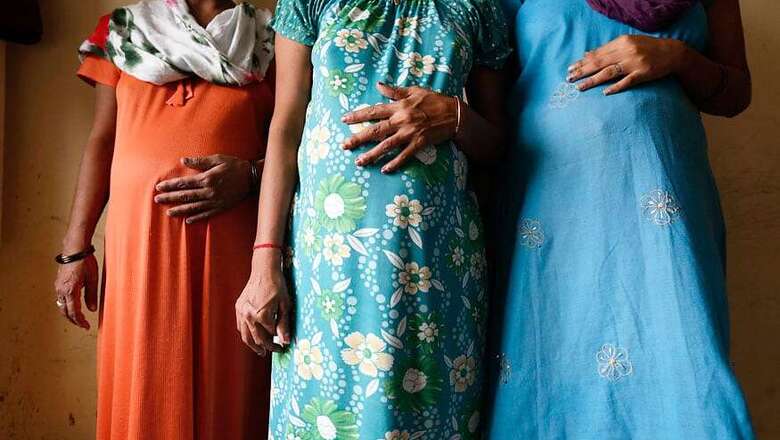
views
The Surrogacy (Regulation) Bill, 2016 came under fire in Parliament on Thursday when a Parliamentary Committee report recommended letting live-in couples and single women avail surrogacy, renaming ‘altruistic’ to ‘compensated’ surrogacy, not restricting the surrogate mother to a close relative of the couples, to allow for privacy, and bring forth the “detailed, comprehensive and all encompassing” Assisted Reproductive Technologies Bill (2008) before the Surrogacy Bill.
The Surrogacy Bill, aimed at banning commercial surrogacy entirely, was introduced in the Lok Sabha on November 21, 2016 and referred to the standing committee by the Rajya Sabha chairman on January 12, 2017. The standing committee on health and family welfare, headed by SP Rajya Sabha member Ram Gopal Yadav, with 12 BJP members on its panel, gave a highly critical report of the Bill’s “moralistic assumptions” taking precedence over scientific criteria, calling it “violative of the basic rights of privacy and reproductive autonomy of the medically infertile persons.”
Based on consultations with various ministries, medical bodies, lawyers, etc., the report said the push to altruistic surrogacy “ignores the ground reality that in Indian marital homes the decision making power rarely rests with women and not so privileged or financially weak relatives who can be coerced into becoming surrogate mothers and the chances of coercion and exploitation are even more in case of close relatives due to family pressures.”
It also took note of the stigma associated with infertility, most often felt by women, criticizing the Bill for not letting a couple keep surrogacy private, instead exposing this decision to a “patriarchal familial structures” by only allowing a surrogate to hear close relative.
Nor would this close relative be adequately compensated by the Bill, which the committee calls “tantamount to another form of exploitation”. The report notes, “altruistic surrogacy is another extreme and entails high expectations from a woman willing to become a surrogate without any compensation or reward but a decision based on noble intentions and kindness.” The report takes into account type labour performed by the surrogate mother, stating, “Pregnancy is not a one minute job but a labour of nine months with far reaching implications regarding her health, her time and her family. In the altruistic arrangement, the commissioning couple gets a child; and doctors, lawyers and hospitals get paid. However, the surrogate mothers are expected to practice altruism without a single penny.”
Leaning in favour certain commercial surrogacy, with regulations in place the committee called itself surprised to know is that other work options for women who opt to be surrogate mothers because of dire financial straits, “were equally, if not more, exploitative and nowhere close to being as remunerative as surrogacy.” Thus, “The Committee is, therefore, of the view that economic opportunities available to surrogates through surrogacy services should not be dismissed in a paternalistic manner. Permitting women to provide reproductive labour for free to another person but preventing them from being paid for their reproductive labour is grossly unfair and arbitrary.”
The Committee, then, recommended a comprehensive insurance cover for the surrogate mother covering even the after effects of surrogacy for a period of six years, along with life insurance to cover any health complications that may occur long after delivery.
The Bill had caused a storm water year by banning all foreign nationals from commercial surrogacy in India, hitting the fertility industry hard. The committee upholds the ban, however makes an exception for PIOs and OCIs after adequate background checks. It remains silent on the ban on homosexual couples looking to have children.
One of the biggest surprises in the report, and expressed by the committee came from the “human embryologist” the speciality doctor as defined by the Bill, who would be a crucial part of the surrogacy procedure. The Committee found that there is no degree given by the Medical Council of India designating as Human Embryologist, nor is there any university offering a course in the human embryo. There are Clinical Embryologists, who hold in an appropriate area of life science or degree in Bachelor of Veterinary Sciences (BVSc) and are familiar with ART procedures. The Committee said it failed to understand “how the Department would utilize the services of such specialty doctors in every corner of the country when these doctors do not exist” and asked the Department of Health and Family Welfare to get its facts correct.




















Comments
0 comment